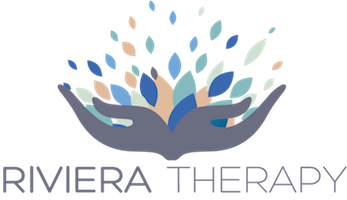
What is Love Addiction?
Delving into Love Addiction
Love addiction is a complex phenomenon that manifests as fixations and compulsions within romantic relationships, often leading to unhealthy behaviors and emotional turmoil. Those grappling with love addiction may prioritize the needs of their partners over their own, leading to a cycle of people-pleasing and self-neglect. This can result in various detrimental outcomes such as divorce, extramarital affairs, diminished job performance, and conflict within relationships. Emotional distress, including anxiety and depression, is also common among individuals struggling with love addiction, as they experience intense highs and lows that strain their relationships and erode their sense of control.
Love addiction is a topic of considerable debate, with some arguing that it’s a ubiquitous aspect of human relationships while others recognize its destructive potential. Regardless of differing perspectives, it’s clear that love addiction can profoundly impact emotional well-being and contribute to relationship struggles. Individuals caught in the grip of love addiction often find themselves trapped in unstable and sometimes abusive relationships, unable to recognize the dangers lurking within.
Love addiction manifests in various ways:
- Obsessed/obsessive love addicts struggle to detach from partners, even in unhealthy or emotionally distant relationships.
- Codependent love addicts derive their self-esteem and worth from their partner, often people-pleasing and seeking validation.
- Narcissistic love addicts exploit their partners for attention and ego-boosting, sometimes mistreating them while maintaining attachment.
- Ambivalent love addicts avoid intimacy, holding onto past loves, engaging in one-sided relationships, and sabotaging their connections. They may run away or struggle with consistency in closeness. These dynamics can involve unhealthy behaviors such as manipulation or threats.
Recognizing the Signs
Identifying love addiction involves recognizing specific behavioral patterns and emotional dependencies. Individuals struggling with love addiction may idealize their romantic partners, placing them on pedestals and obsessing over them to an unhealthy degree. They may experience intense cravings, withdrawals, and dependency, seeking constant emotional validation from their partners. Clinical Sexologist and Certified Sex Addiction Therapist Jenn Kennedy says, “Love addiction often includes a deep sense of longing, preoccupation with another, and/or excessive strategizing about relationships. The focus is external, and they try to secure “love” to feel more okay with themselves.” Love addicts may find it challenging to be alone, perpetually seeking out new romantic connections to fill the void within themselves.
Underlying Factors
Research suggests that genetics, past trauma, attachment style, and upbringing can all contribute to the development of love addiction. One of our therapists, Annie Finch, says, “Love addiction often results from an adult attachment style that was created by adopting survival patterns to tolerate feelings of abandonment or neglect they experienced in childhood.” Low self-esteem and unresolved childhood trauma are common underlying factors that drive individuals toward addictive relationship patterns. Furthermore, the rush of neurochemicals during sexual activity can intensify attachment for those already struggling with feelings of inadequacy or dependency.
Love addiction can manifest in various forms, with individuals exhibiting traits of obsession, codependency, narcissism, or ambivalence. Each type of love addict engages in distinct patterns of behavior, from clinging to emotionally distant partners to exploiting relationships for personal gain or avoiding intimacy altogether.
Co-Occurring Disorders and Treatment Options
Love addiction often coexists with other mental health challenges, such as trauma-related disorders or substance abuse issues. Individuals may seek out love as a means of coping with underlying emotional pain or as a substitute for addictive substances. The distress caused by failed relationships can exacerbate existing anxiety or depression, leading to further dysfunction in various areas of life.
Treatment for love addiction typically involves a combination of therapeutic approaches, including Cognitive Behavioral Therapy (CBT), mindfulness practices, and special therapy with therapists that specialize in relationships, sex, and even sex addiction. Online therapy can offer accessible support for individuals seeking to address their addictive relationship patterns from the comfort of their own homes. Ultimately, healing from love addiction requires a commitment to self-awareness, self-love, and breaking free from destructive relationship dynamics.
Seeking Help
If you or someone you know is struggling with love addiction, it’s essential to reach out to a therapist for support and guidance. Remember, you’re not alone in your journey toward healing, and there are resources available to help you break free from the grip of addiction and cultivate healthier, more fulfilling relationships. Riviera Therapy has multiple therapists trained in supporting individuals with love addiction and other relationship-oriented struggles.



